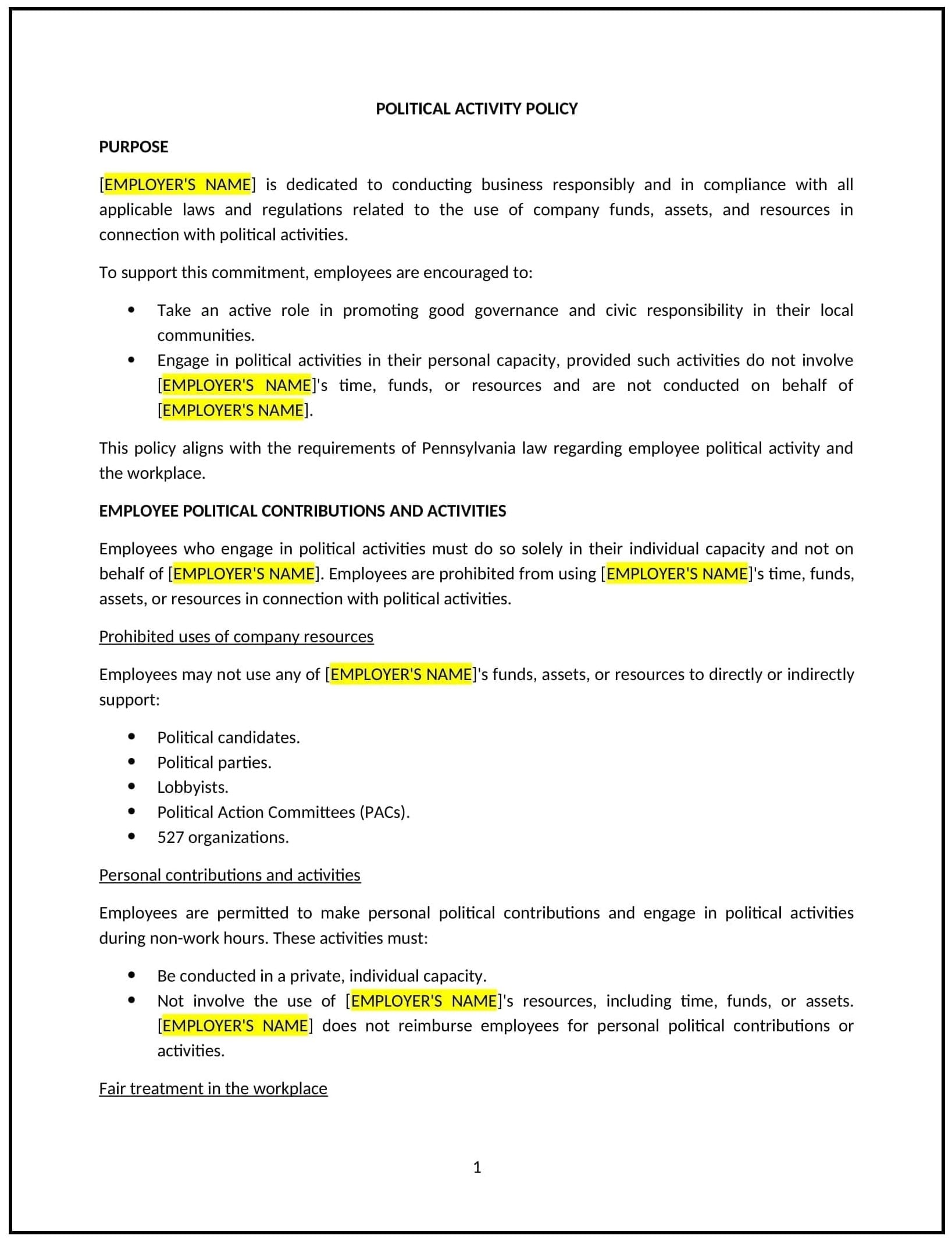Political activity policy (Pennsylvania): Free template
Got contracts to review? While you're here for policies, let Cobrief make contract review effortless—start your free review now.

Customize this template for free
Political activity policy (Pennsylvania)
This political activity policy is designed to help businesses in Pennsylvania establish clear guidelines regarding employee participation in political activities, both within and outside the workplace. By outlining expectations for political engagement and addressing potential conflicts of interest, this template ensures workplace neutrality while respecting employees’ rights.
By using this template, businesses can maintain professionalism, reduce workplace disruptions, and align with Pennsylvania labor laws and federal regulations.
How to use this political activity policy (Pennsylvania)
- Define political activity: Clearly specify what constitutes political activity, such as campaigning, distributing materials, or fundraising, during or outside of work hours.
- Address workplace neutrality: Outline the expectation that employees refrain from engaging in political activities during work hours or using company resources.
- Include employee rights: Emphasize that employees have the right to participate in political activities outside of work, in compliance with Pennsylvania and federal laws.
- Specify conflict of interest rules: Prohibit activities that create conflicts of interest or could harm the company’s reputation.
- Reflect Pennsylvania-specific considerations: Tailor the policy to address state-specific rules or workforce dynamics, such as local election laws or industries impacted by political regulations.
Benefits of using a political activity policy (Pennsylvania)
A well-structured political activity policy supports workplace professionalism and neutrality. Here's how it helps:
- Maintains workplace focus: Ensures that work hours are dedicated to business operations rather than political activities.
- Protects employee rights: Balances workplace rules with employees’ rights to engage in political activities outside of work.
- Reduces conflicts: Minimizes potential disputes among employees with differing political views.
- Safeguards reputation: Ensures that political activities do not negatively impact the company’s public image.
- Reflects local needs: Aligns with Pennsylvania-specific legal requirements and workplace dynamics to ensure compliance and relevance.
Tips for using a political activity policy (Pennsylvania)
- Communicate the policy: Share the policy with employees to ensure they understand the company’s stance on political activities.
- Train managers: Equip supervisors with guidance on enforcing the policy consistently and handling related questions or concerns.
- Monitor compliance: Implement procedures for identifying and addressing violations of the policy, such as using company resources for political purposes.
- Encourage respectful dialogue: Foster a workplace culture that respects differing political opinions while discouraging political debates in the workplace.
- Review periodically: Update the policy to reflect changes in Pennsylvania election laws, workplace dynamics, or organizational priorities.